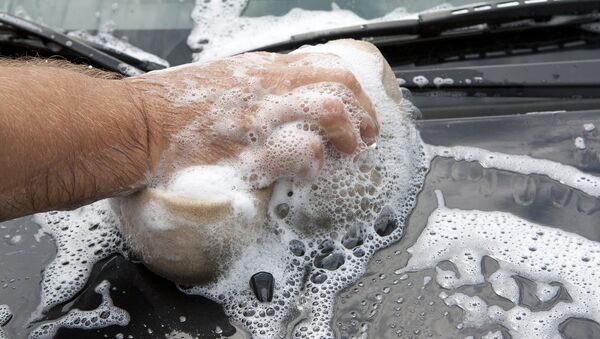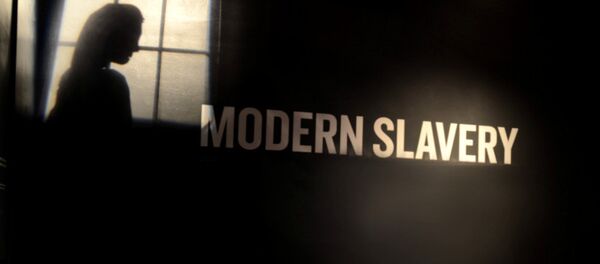Sandu Laurentiu Sava, died in August 2015 at the Bubbles car wash in Bethnal Green, East London where he lived and worked like a modern slave with five other Romanian men.
Mr. Laurentiu, who was 40, worked for Shaip Nimani from Kosovo, who paid him US$49 a day to work in a car wash and charged him US$40 a week to live in conditions described in court as "almost abject squalor."
Nimani admitted to manslaughter charges at the Old Bailey in London where he was ordered to pay Mr. Laurentiu's family US$25,000 in compensation and an additional US$25,000 in court costs.
The abolition of modern slavery has been high on the political agenda in Britain since 2015 when former home secretary Theresa May introduced a Modern Slavery Act, said to be a first for Europe.
Inspired to be w/ British PM @theresa_may at #WEF2017 as she puts the world on notice that the UK will lead in fighting modern slavery! pic.twitter.com/ut0H3zpjKl
— Gary Haugen (@garyhaugen) January 19, 2017
However in 2016, Kevin Hyland, the UK's independent anti-slavery commissioner, criticized police forces for not handling modern slavery cases properly after data revealed that only a quarter of 3,000 cases were investigated and recorded as a crime, leaving the majority of victims still fighting for some kind of justice.
Mr. Hyland said the case of Sandu Laurentiu who was fatally electrocuted in the shower was "one of the worse examples of modern slavery to be seen on the high street."
"Slavery is in our cities and towns, right there in plain sight for all to see. Local authorities, police and other agencies must look at what is happening in front of their eyes in the car washes, nail bars and brothels where we know this type of crime is taking place," Mr. Hyland said.
Watch our evidence session on Victims of modern slavery on Wed 11 January at 9.30am: https://t.co/nD9uAXc5ms @HumanTraffFdn @UKAntiSlavery pic.twitter.com/aouczsRy9t
— Work & Pensions Ctte (@CommonsWorkPen) January 9, 2017
A statement from Mr. Laurentiu's brother, Marius Sava, on behalf of his family said: "Firstly I would like to say that when I heard about the death of my brother I was devastated."
"I could not and did not want to believe that such a terrible thing had happened."
Research commissioned by The Salvation Army suggests the number of victims of modern slavery needed help from the charity has risen by five fold since 2011.
And despite UK businesses with a turnover of more than US$44 million a year legally obligated to eradicate slavery in their supply chain, the majority of the British public isn't aware of the legislation.
Love collaboration between @UnseenOrg @MSHelpline and @SalesforceOrg bringing tech solutions to work towards a world without #modernslavery https://t.co/l17KqK7IYq
— Andrew Wallis OBE (@andyw1) January 19, 2017
Anne Reid, director of anti-trafficking and modern slavery at The Salvation Army, said:
"This data shows that UK businesses are falling short of what is needed to ensure the slave-free Britain that government, police, NGOs and other stakeholders in the sector are calling for."




